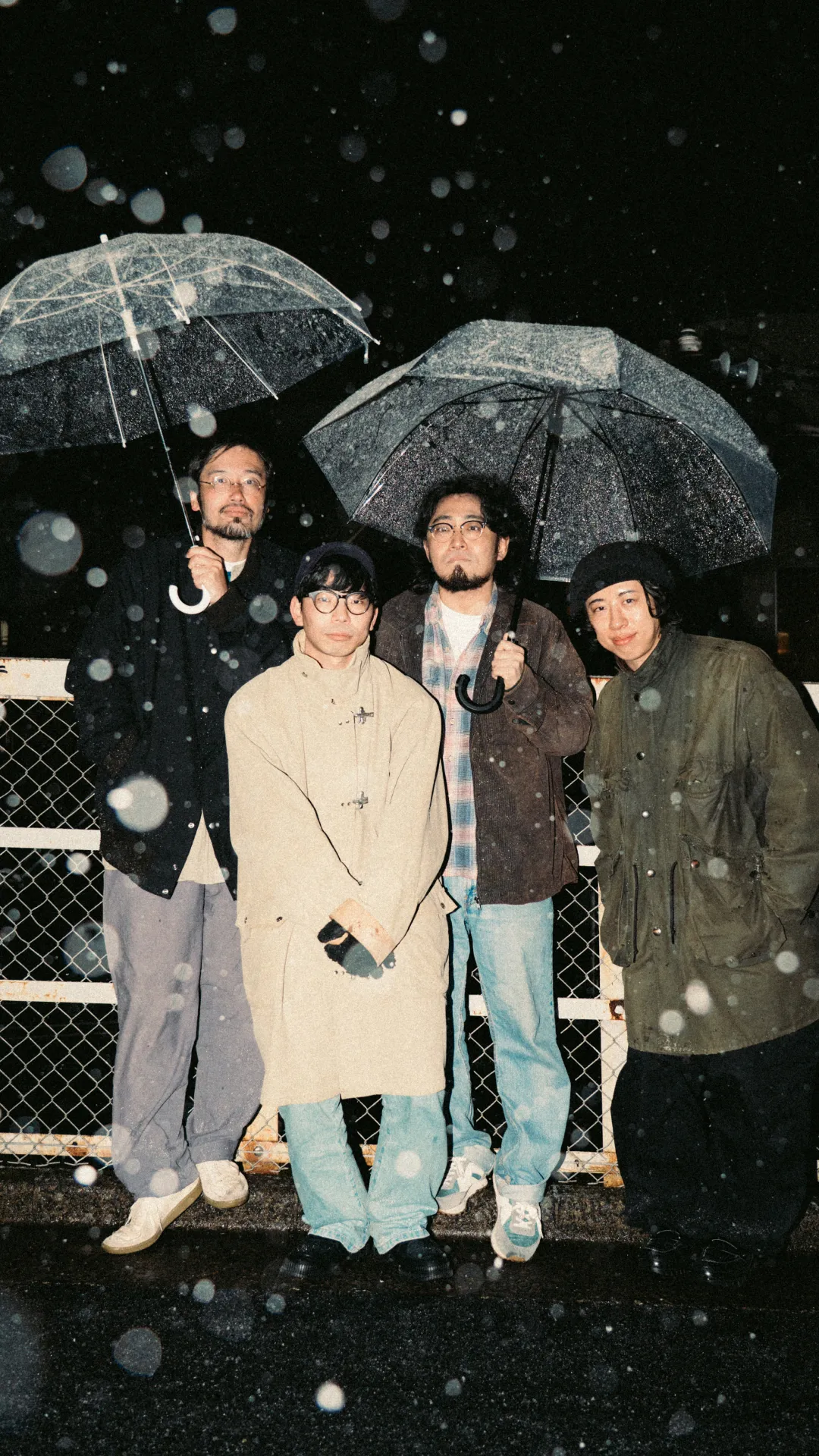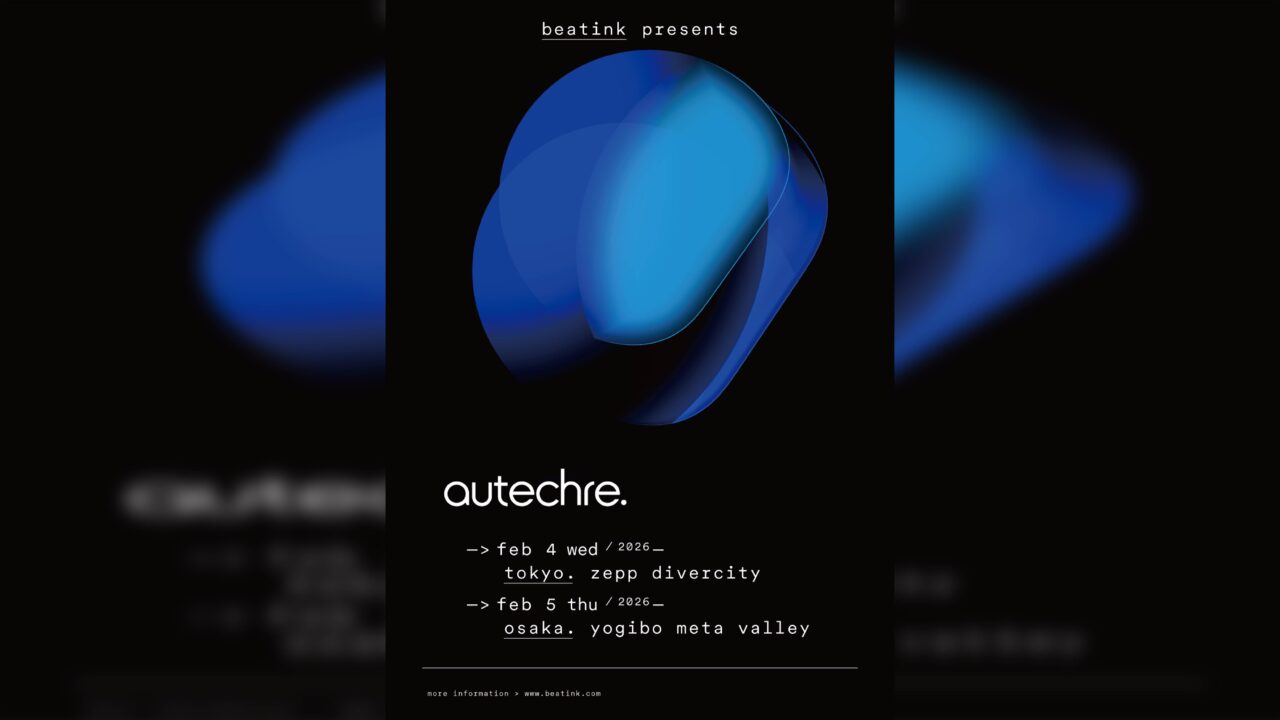INDEX
The Core of the Relationship Between the Two Who Cross Paths by Chance
Imaizumi: By the way, was this song always meant to reflect the relationship between the band and the audience? I thought it was a straightforward love song. In fact, I even believed that the lyrics were based on your real-life romantic experiences, Yoshida. I’d like to think some fans are hearing it that way too [laughs].
Yoshida: I wrote this song before we even formed the band, during a time when I was performing solo. At that point, the dynamics of the relationship between a band and its audience weren’t reflected at all. It was more about me singing alone in a space, with the feeling that someone might occasionally pass by.
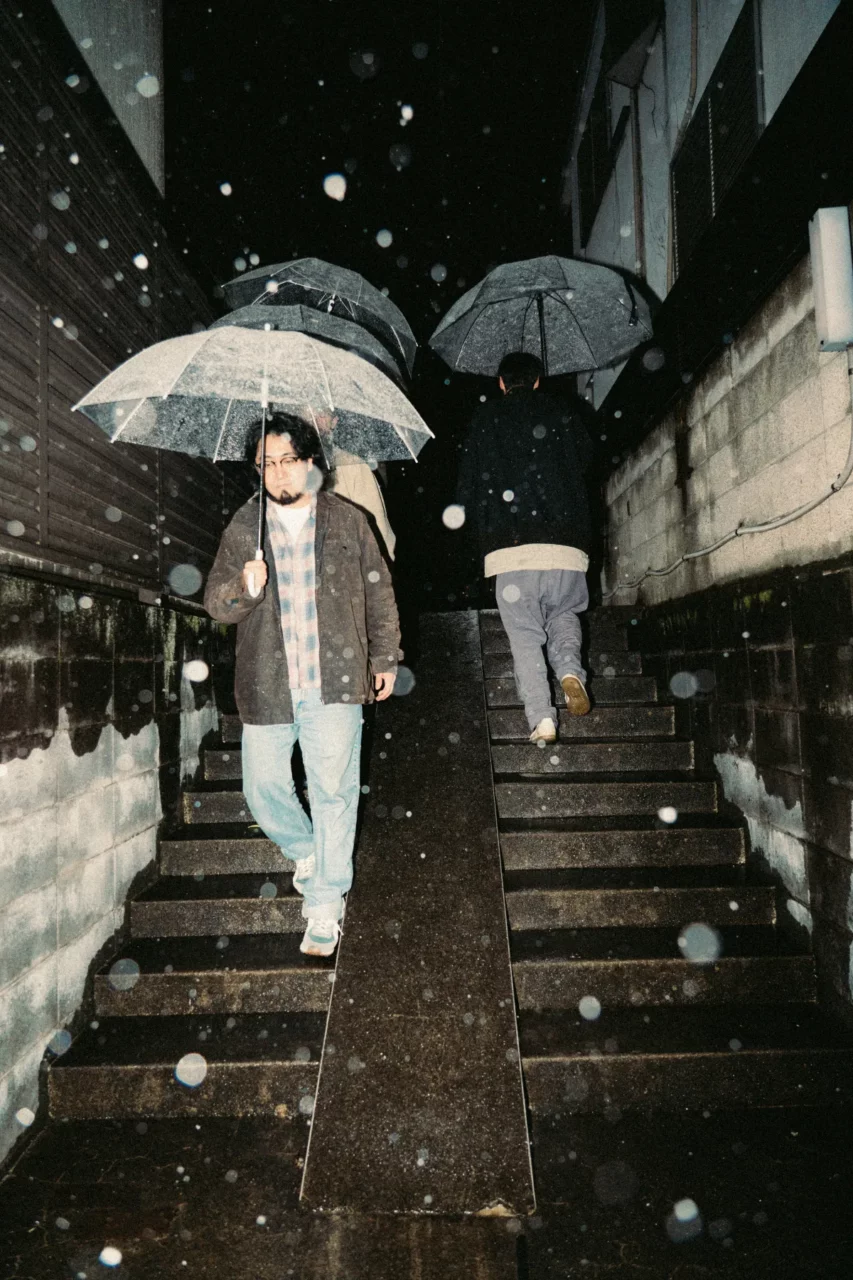
Imaizumi: I see! It really sounded like a very personal song. It’s not exactly an anthem to inspire everyone, right? The film Call Me Chihiro was created with that same attention to detail. Rather than Chihiro actively going out to help someone, it’s more about the way her conversations or gestures naturally make others feel better. In the same way, I felt this song helps people at a comfortable, soothing temperature.
Winter Morning revolves around the distance between people, doesn’t it? There’s a norm that “the closer the human relationship, the better,” but I think it’s also because of this desire for closeness that such inner turmoil arises. Tanabe, Miho, and Sakai each have different depths of connection they seek from each other, and they just can’t seem to find common ground.
Imaizumi: Exactly, even in the dialogue, Miho refers to Tanabe as a “friend.”
Washimi: She’s setting boundaries, isn’t she? [laughs]
I think what you’re saying is that there is a mutually supportive relationship that can exist because of the kind of distance mentioned in the lyrics, like the two who happen to cross paths—not seeking intimacy, but still forming a bond.
Imaizumi: It might have turned into an educational video about “let’s be careful with intimacy” [laughs]. The concept of “friendship” is difficult to define, isn’t it? With a lover, it often starts with the words “Will you go out with me?” but I’ve never said, “Will you be my friend?” I’ve always felt insecure about not having friends. Since I was a child, I’ve wanted at least one close friend, someone like a best friend. If the “friends” in this song refer to the audience of the band, then it’s a word with such broad meaning.
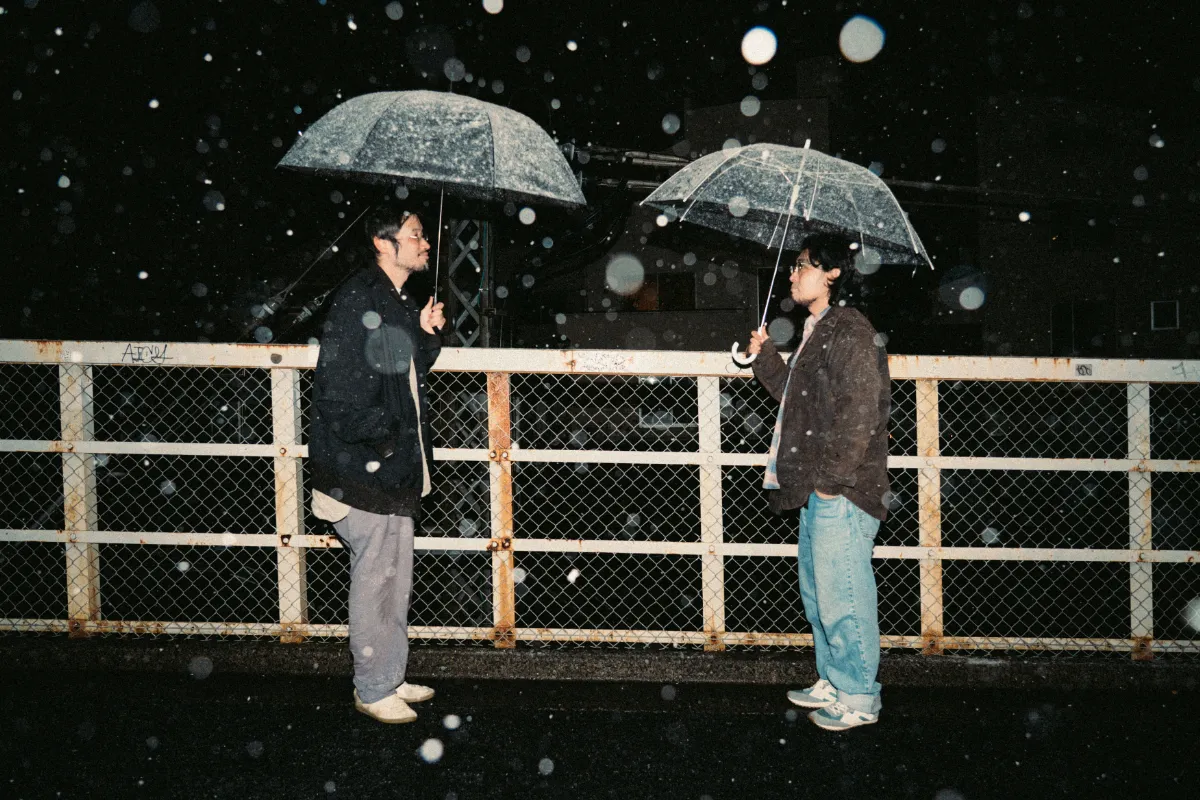
The relationship in Tomodachi no Uta feels much more detached than the usual idea of “friendship,” doesn’t it?
Yoshida: The title came last. I started making the song with just a hum, and when I thought of the line “When morning comes, we…” I naturally kept building the lyrics from there. Once it was finished and I started thinking about the title, it just felt like “friends.” It’s not like the kind of friendship you’d form by sitting next to someone in class, but when I asked myself, “What do we call this relationship?” it could only really be “friendship.” It’s almost like a statement of, “We’ll just call it friendship.”
The relationship between band members is also hard to define with a single term, right?
Imaizumi: Definitely. I wonder what the relationship between band members really is like.
Yoshida: It’s complicated. Especially in this band, we never had a time when we were just friends. We weren’t classmates or anything—since the very first meeting, we’ve always been band members.
Washimi: Our ages are different, and our backgrounds and experiences couldn’t be more different. I feel like I only truly got to know who they were after becoming a member.
Yoshida: I had been in another band with Yamagishi, so there was already some relationship there, but with Wasumi, I just thought he played interesting bass, so I asked him to join. If our personalities didn’t match, it would’ve ended right there.
Imaizumi: Do you three often go out drinking together?
Yoshida: Not really.
Washimi: But we spend an incredible amount of time together. We’re in the studio nearly every day, and whenever there’s free time, we want to work on music. People often call this “a family-like relationship,” but honestly, it’s nothing like a family.
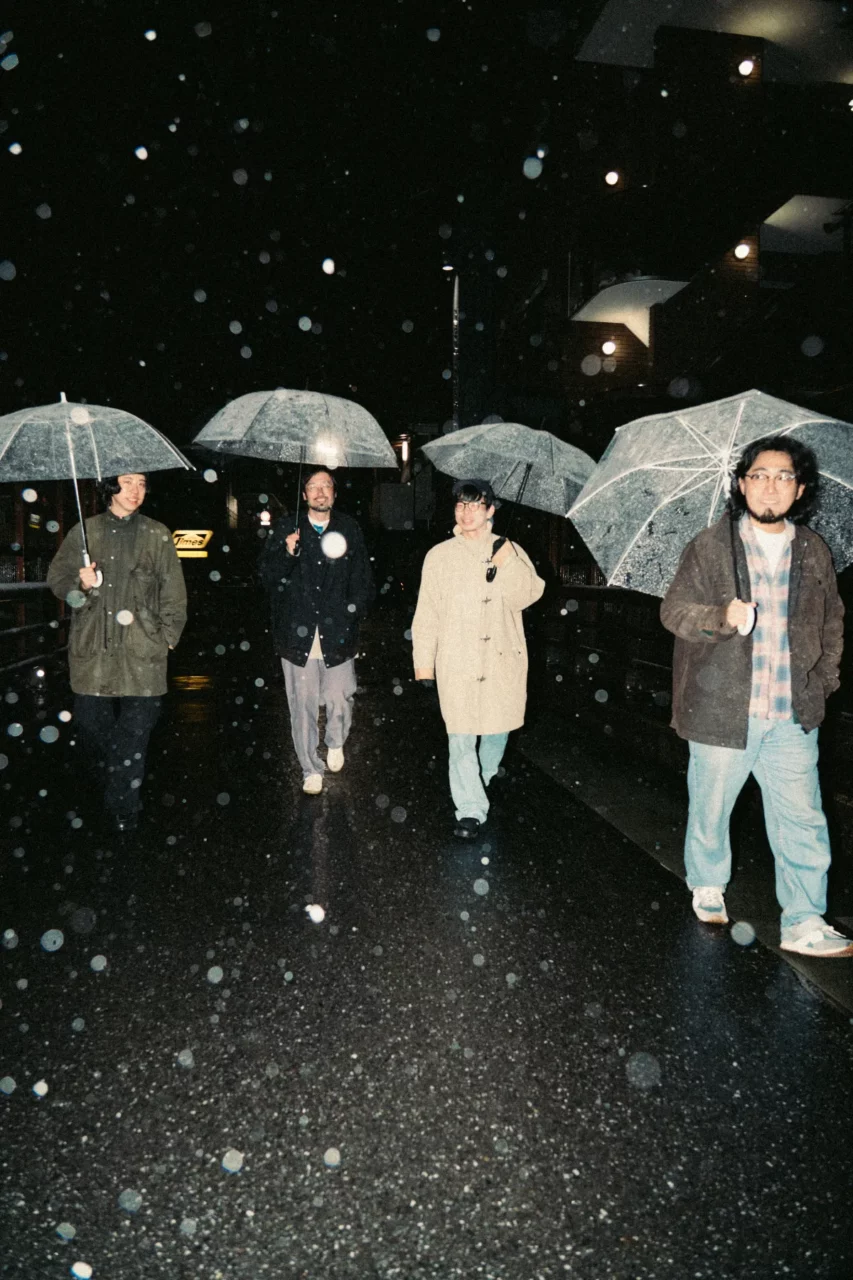
Imaizumi: It doesn’t quite have that warmth, does it? It’s not all that clingy. A lot of people use “family” in a positive way, but even that feels a bit questionable.
Washimi: Exactly. We’re not family, we’re not friends, and we’re not colleagues either. “Band members” is the term that feels the most right.





